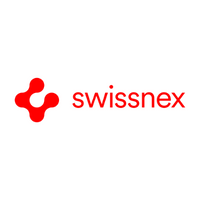
Swissnex
View Brand PublisherWhy the silent pandemic of antimicrobial resistance needs collective action
A call to startups and innovators to join the Indo-Swiss Innovation Platform on AMR to tackle antimicrobial resistance.
Antimicrobial resistance (AMR), the ability of microbes to defy available treatment methods, is projected to have dramatic effects in the near future.
In 2016, British economist Jim O’Neill predicted 10 million AMR-related deaths by 2050 and a $100 trillion economic loss, disproportionately affecting low- and middle-income countries. In 2019, a landmark study reported 1.27 million deaths directly attributed to antibiotic resistance.
Like climate change and unlike COVID-19, AMR is a slow-moving crisis, and its direst repercussions will be felt at some point in the future rather than in the immediate future. Yet, scientists predict that we will soon be unable to perform routine surgeries due to antibiotics that will be unable to fight even the most basic infections. If the climate crisis is existential, the AMR silent pandemic risks setting humanity back to a pre-1928 world before the discovery of penicillin.
AMR affects India on several levels, from the production of antibiotics at a large scale to animal husbandry, high levels of drug-resistant tuberculosis, over-the-counter use and inappropriate disposal of antibiotics.
India’s public health may be a key theatre of the global AMR battle, but its scientific laboratories may well be the turf where many solutions will come from. Bugworks, a Bangalore-based startup, is developing novel antibiotics to combat drug-resistant infections. It is leading the charge against AMR by leveraging cutting-edge technology such as artificial intelligence and machine learning. It is developing the most advanced new class of antibiotics in clinical trials worldwide.
While Switzerland hasn’t experienced the same incidence of AMR as India, it is making strong strides in technologies combating antibiotic resistance and antibiotic contamination, from manufacturing to treatment. Clemedi, a medical diagnostics startup, is one such example, helping identify antibiotic resistance across multiple disease conditions and ensuring patients are treated with the right antibiotic. Oxyle is another startup helping clear antibiotic contamination in wastewater from manufacturing and hospitals. Other companies like Diaxxo offer decentralised point-of-care health solutions, helping in precise infection identification for remote populations and reducing diagnosis times.
The global AMR crisis must be countered by enhanced cross-border efforts, from building health resilience to changing behaviours and developing new technologies to detect, diagnose, and treat AMR.
Nations should play to their strength and come together, complementing each other. India has a promising R&D pipeline related to AMR; at the same time, it is home to novel resistances at a much higher rate than Switzerland. On the other hand, Switzerland is home to big pharma companies and numerous promising startups in diagnostics and treatment. Swiss R&D needs to consider India’s emerging resistance and work closely with India’s R&D sector to stay ahead of the curve.
To foster the creation of such a targeted community of practice, Swissnex in India is piloting an Indo-Swiss Innovation Platform on AMR. The aim is to align existing programmes and bilateral funding instruments and create new avenues and pathways for collaboration at the intersection of industry and academia. The Innovation Platform will be launched in October 2023 with a three-day gathering at the National Centre for Biological Sciences (NCBS) featuring 50+ delegates from India, Switzerland, and beyond.
Like climate change, AMR requires urgent collective action. Numerous emerging market opportunities in AMR will help dampen the crisis while offering sound economic opportunities.
Currently, most antibiotics are prescribed or taken without any diagnostics that inform caregivers or patients whether the condition is caused by microbes susceptible to the medication of choice, leading to antibiotic overuse. Affordable and faster diagnostics deployable at the point-of-care to assess drug susceptibility will allow more precise usage of antibiotics for a better or equal health outcome for the patient. COVID-19 has shown that we are capable of inventing these necessary interventions.
Physicians, veterinarians, patients and other end users of antimicrobials like animal farmers often lack time or sufficient knowledge to make the most appropriate choices for treatment. Developing applications that enable better decision-making has been shown to change this significantly.
Furthermore, applications that collect and accumulate resistance data in different granularity are valuable for policymakers, pharmaceutical companies, and insurance and reinsurance companies. This holds true for civil engineers, architects, public health sectors, and other companies potentially providing structural interventions to prevent or reduce the spread of communicable diseases. In the long run, companies will want to invest in mechanisms that keep the disease burden low and their workforce up.
It is also key to monitor resistance in the environment to curb threats at the source and therefore minimise the economic and social burden on society. Current surveillance tools to look for contaminations in effluents and wastewater are expensive and rare. Developing reliable products that can ideally be deployed in remote settings has significant market potential.
Lastly, we need tools not just to detect but also to eliminate pathogenic or resistant residues like antibiotics from industry, human waste, and animal husbandry in water and soil. Pharmaceutical companies will need innovations to "be clean at the source", and local authorities will need water treatment technologies to ensure tighter compliance. Solutions that filter effluents and advanced sewage treatment will be in high demand.
Market-based solutions in these areas are scarce, while the need and addressable market are enormous. We see a promised land for all of them. Will you join us in creating affordable, easy-to-operate, and scalable solutions that the world so desperately needs?







